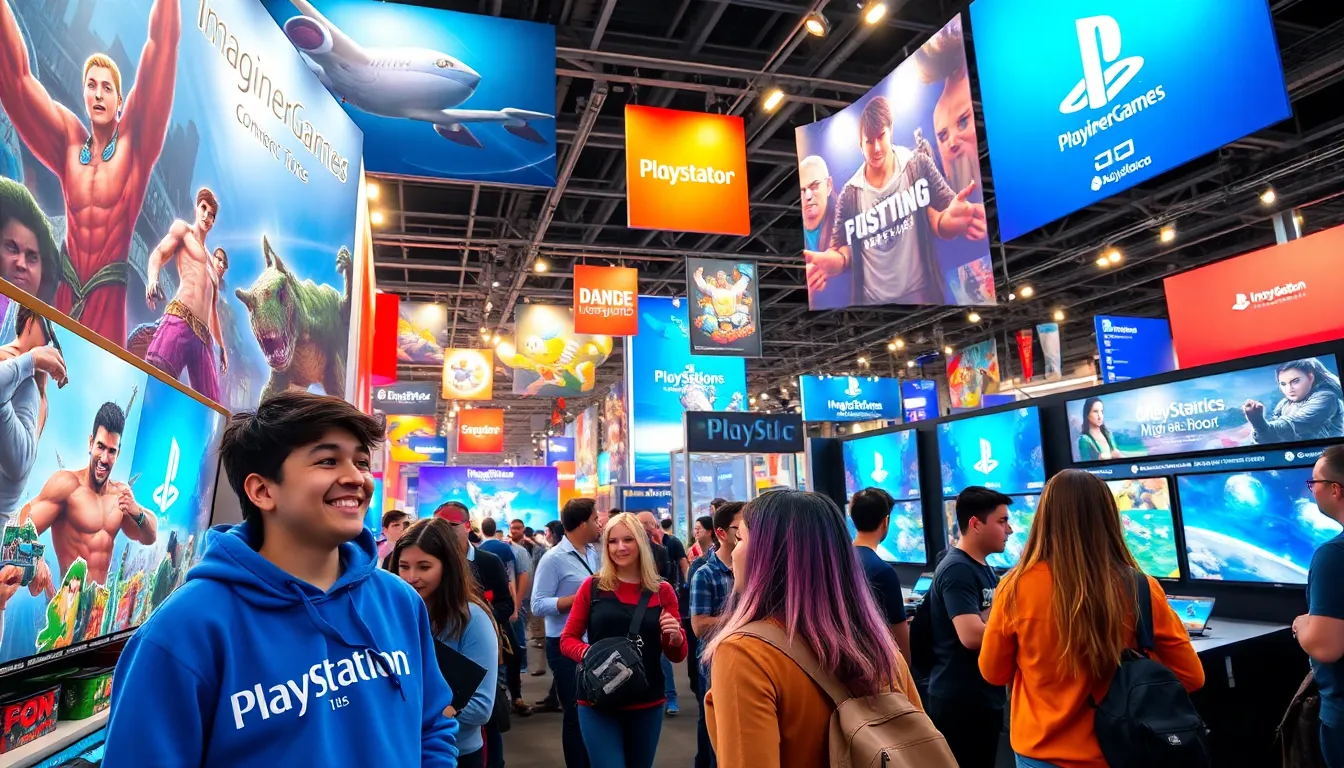In the vibrant world of Rainbow Six Siege, teamwork is everything. Yet, lurking in the shadows are toxic players who seem to thrive on chaos. They’re the ones who turn a strategic match into a battlefield of insults and negativity. Ever had a teammate who’d rather throw shade than smoke grenades? Yeah, that’s the kind of player who can ruin the fun for everyone.
Table of Contents
ToggleUnderstanding Toxic Behavior in Rainbow Six Siege
Toxic behavior in Rainbow Six Siege manifests in various ways, often impacting the overall team dynamics. Players may engage in harassment, such as verbal insults or persistent negativity, which detracts from gameplay. Frequent examples include publicly criticizing teammates for mistakes or intentionally sabotaging missions.
Another form of toxicity involves excessive griefing. This behavior disrupts matches by intentionally causing failures, such as team kills or refusing to cooperate. Players who adopt this mindset do so to create chaos rather than enhance the competitive experience.
Team chemistry suffers significantly due to toxic players. Cooperation and communication become strained when negativity permeates the team. In a tactical game like Siege, where strategy and teamwork are crucial, this disruption can lead to a swift defeat.
Statistics show that toxic behavior correlates with increased player reports. Ubisoft, the game’s developer, has implemented systems to track and penalize toxic actions. Effective monitoring helps maintain a more enjoyable environment for the majority of players.
Community responses toward toxic behavior reveal a desire for improved conduct. Players advocate for better reporting systems and community guidelines that promote positive interactions. Many resonate with the importance of fostering a healthy gaming atmosphere that encourages teamwork.
It’s essential to recognize how such behavior can damage the game’s integrity. Understanding the impacts of toxicity allows players to take proactive steps against it, ensuring a better experience for everyone involved in the match.
Common Traits of Toxic Players

Toxic players in Rainbow Six Siege exhibit specific behaviors detrimental to the gaming environment. Understanding these traits helps in identifying and addressing issues that arise during matches.
Verbal Abuse and Harassment
Verbal abuse ranks among the most common toxic behaviors. Players often use insults and derogatory comments, aiming to belittle teammates. Such harassment can manifest through in-game chat or voice communication, creating a hostile atmosphere. Toxic individuals frequently target others based on perceived skill levels, leading to decreased morale and performance. Ignoring these insults might seem like a solution, but it’s crucial to report such behavior to maintain a healthy gaming community.
Intentionally Sabotaging Teammates
Intentionally sabotaging teammates disrupts the team’s efforts and strategy. Some players engage in griefing, where they deliberately cause team kills or fail to cooperate during critical moments. This behavior not only hampers success but also frustrates other players striving to win. Engaging in such actions often results in immediate backlash from teammates, yet toxic players persist in their disruptive tactics. Reporting these actions remains essential, as game developers emphasize fostering a collaborative and enjoyable environment for everyone involved.
Impact of Toxic Players on the Game Experience
Toxic players significantly affect the overall experience in Rainbow Six Siege. Their negative behavior disrupts teamwork and communication among teammates, often leading to a frustrating atmosphere.
Effects on Team Morale
Disrespectful comments and insults lower team morale and foster a hostile environment. When players face verbal harassment, they may feel demotivated and less inclined to collaborate. A decline in enthusiasm appears evident as players experience ongoing negativity. Team dynamics suffer, and bonding becomes challenging, ultimately diminishing the enjoyment of the game. Players often report feeling anxious or stressed, impacting their focus and engagement in matches. Positive interactions, in contrast, create a sense of solidarity and camaraderie among team members, enhancing the overall experience.
Consequences for Gameplay Performance
Toxic behavior negatively influences gameplay performance and strategy execution. Players who engage in intentional sabotage disrupt mission objectives and leave their teammates at a disadvantage. Communication suffers when negativity prevails, leading to misunderstandings and poor coordination. Average match outcomes decline as toxic players prioritize personal enjoyment over team success. Frustration grows when teammates struggle with anxiety and diminished focus, resulting in missed opportunities and game losses. Maintaining cooperation hinges on a supportive environment, vital for achieving victory in a tactical game like Rainbow Six Siege.
Addressing Toxicity in the Community
Toxicity in the Rainbow Six Siege community requires actionable responses. Reporting mechanisms play a crucial role in mitigating negative behavior in gameplay.
Reporting Mechanisms and Tools
Players can utilize various reporting tools within the game. In-game reporting features allow users to flag toxic behavior during matches. Effective tools include options for submitting complaints on verbal abuse and intentional sabotage. Players benefit from using detailed feedback forms to specify incidents and provide context. Ubisoft actively monitors these reports to identify repeated offenders, implementing necessary penalties. Regular updates to the reporting system enhance user experiences and increase accountability among players. Players should remain vigilant in using these mechanisms to foster a healthier competitive atmosphere.
Community Initiatives and Solutions
Community initiatives significantly contribute to reducing toxicity. Supportive programs facilitate discussions on respectful gaming and teamwork among players. Some groups promote positive player conduct through social media campaigns, emphasizing good sportsmanship. Online forums often encourage players to share experiences, fostering understanding and empathy. Additionally, player-led events strengthen team dynamics, offering rewards for fair play and cooperation. Communities increasingly advocate for mentorship programs, pairing seasoned players with newcomers to instill positive behaviors. These collective efforts help nurture a more enjoyable environment and reaffirm the commitment to combating toxicity.
Toxic players can severely undermine the experience in Rainbow Six Siege. Their disruptive behavior not only affects team dynamics but also detracts from the overall enjoyment of the game. By fostering a culture of respect and accountability, the community can create a more welcoming environment for all players.
Implementing effective reporting systems and encouraging positive interactions are essential steps toward combating toxicity. The commitment to maintaining a supportive atmosphere will enhance gameplay and encourage cooperation. As players unite against negative behavior, they pave the way for a more enjoyable and successful gaming experience.





